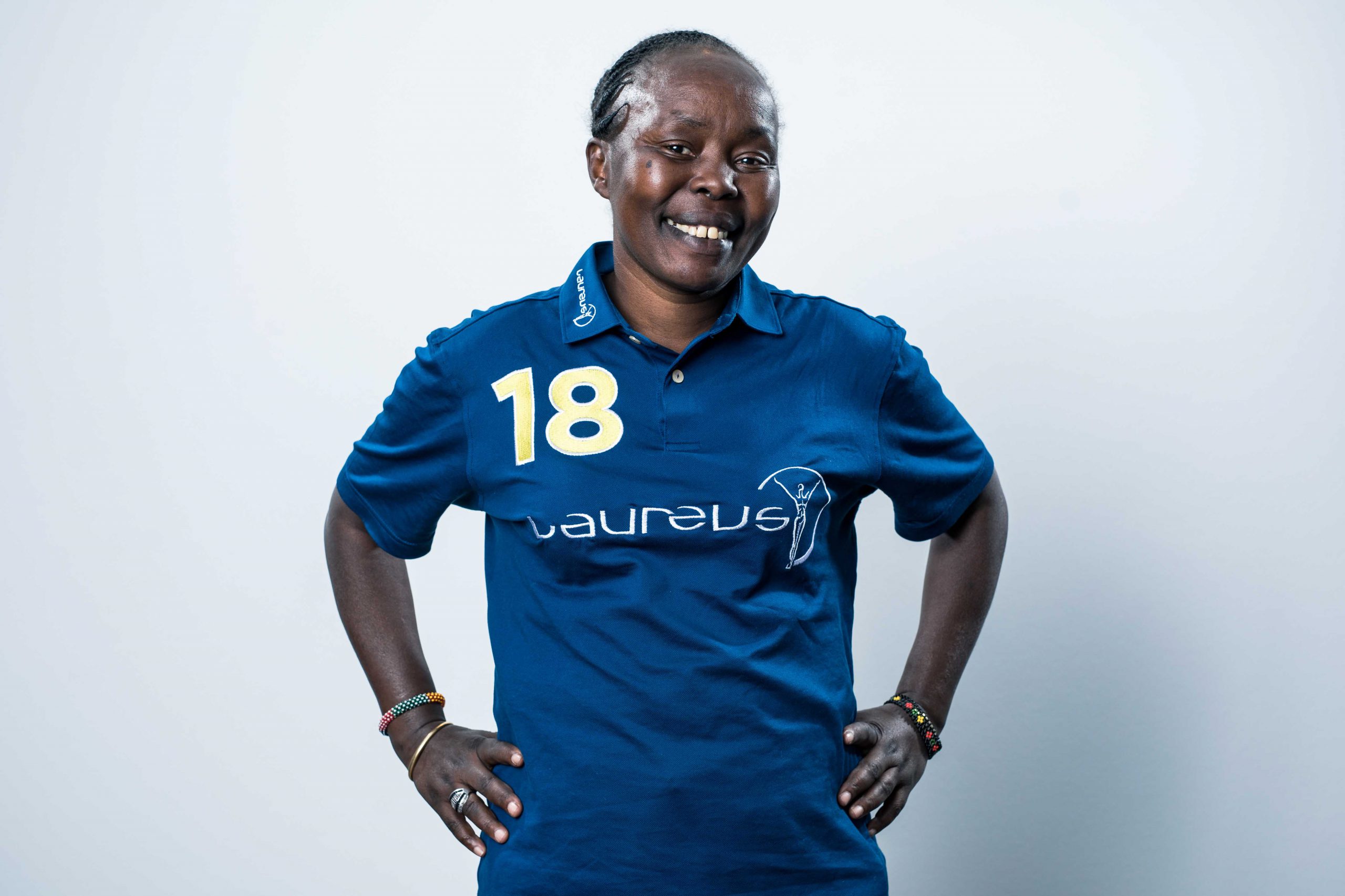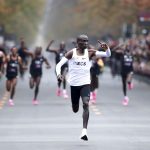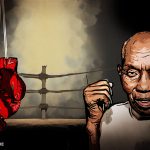Tegla Loroupe brings peace to her violent homeland
The decorated long-distance runner from Kenya hasn’t stopped giving her countrymen and women something to be proud of and smile about, even after hanging up her running shoes.
Author:
24 January 2020

The story is well told about how in the far-flung arid northern region of Kenya, where former long-distance runner Tegla Loroupe grew up, the locals had a way of greeting visitors from the affluent central parts of the country: “How are things in Kenya?”
To them, Kenya was another country, a rich one, and one they mostly heard about on the radio. Some still have this perception although devolution – the cornerstone of the administrative architecture that Kenya adopted after promulgating a new Constitution in 2010 – brought the government so much closer to the people that millions who lived on the margins of society are now in the mainstream. But this remains a huge work in progress.
West Pokot, Loroupe’s birthplace, is a difficult habitat. For decades, the main economic activity has been cattle rustling. Like other vast wilds of Kenya’s northern region, it is a land of guns. Children as young as 10 wield them. Here, the gun is the law and there is no knowing how many have perished from its barrel in these nearly 60 years of Kenya’s independence.
A special report in mid-2019 by the Daily Nation, Kenya’s largest newspaper, dramatised the lawlessness of the region thus: “Politics, clandestine interests, livestock business, both legal and illegal, and a mixture of traditional feuds run concurrently, triggering a deadly mix of violence in a land where the gun is the arbiter.
“We found that cattle rustlers, who run the multimillion-shilling cattle theft empire, are buying bullets for Russian-made AK-47 guns and the German Heckler & Koch G3s for as little as Sh100 [about R14] each. Guns are also being traded or exchanged for two to five cows, sometimes in the full glare of police. Outnumbered by armed civilians, police here opt to look the other way.”
This is the hydra-headed monster that Loroupe decided to take on using her athletic talent. A sportswoman whose small stature and simplicity of character belied her strength and did little to reveal the enormity of her social conscience, Loroupe has done more to affect the relations between warring communities with the soft power of running than the government of Kenya has with its hard approach of violence on violence.
Related article:
Born into deprivation in 1973 to a polygamous father and into a household of 24 siblings, Loroupe seemed destined to live out the life so common in pastoralist Kenya: child labour and then an early marriage. Growing up in a Rift Valley village called Kapsait about 600km from Kenya’s capital, Nairobi, Loroupe did not discover her running ability until she started school.
She had to run a great distance, not less than 10km, before and after school, but there was nothing extraordinary about that. It is the routine life of many rural Kenyan children, especially in remote areas like the north.
A long-distance world champion
But seeing how easily she beat older children at running, she developed an interest in the sport, supported by her mother and pretty much nobody else. A cross-country win in 1988 at the age of 15 brought her to the attention of the national athletics authorities and her sterling career was born. She would go on to become the first African woman to hold the world marathon record, which she did between 1998 and 2001.
Among a glittering array of accolades, Loroupe became three-time world half-marathon champion and the first African woman to win the New York City Marathon, which she did twice. In addition to New York, her big city marathon wins include London, Berlin and Rome.
Loroupe belongs to a select group of African sportsmen and women who are acutely aware of their humble beginnings and seek to fight the poverty in which they grew up. The social and humanitarian activities of footballers such as Nigeria’s Nwankwo Kanu and Ivory Coast’s Didier Drogba are well documented. Loroupe is an elite player in this league. The strength of her personality lies in her humility. She speaks quietly and clearly with the destiny of her people always at the top of her mind.
Her passion for education, which she could well have missed as she tended to cattle and fetched firewood, led her to establish an academy through which no fewer than 800 pupils have passed.
Related article:
As she approached the end of her athletic career, she started speaking out more and more about the tragedy of West Pokot. Endemic poverty, severe economic inequality and cultural practices that oppress especially women were holding the region back. The violent nature of the main economic activity of the region made it a forbidding place for anybody even thinking of investing there. She followed up her words, which had many in the world paying attention, with the establishment of the Tegla Loroupe Peace Foundation.
In a television interview, she said: “Kenya continues to suffer many conflicts among different communities. The main causes of these conflicts are economic and cultural. Through sport, we can address them. Everything starts with perceptions and sports is appealing to everybody regardless of their ethnic, religious or social background.”
In articulating sport as a major antidote to conflict, her foundation says: “Sport is a universal language that can be understood by all. Its intrinsic values such as teamwork, fairness, discipline, respect for the opponent and the rules of the game are understood all over the world and thus can be harnessed in advancement of solidarity, social cohesion and peaceful coexistence. These values are core in resolving any conflicts.”
Bringing peace through running
To wide media interest in Kenya and abroad, Loroupe organised her first Peace Race in a town called Kapenguria, West Pokot, in 2003. It was a 10km run and featured competitors from all five ethnic groups involved in the ruinous cattle-rustling activities. The starting pistol was the only gun heard, at least for this once. Separate races involved children, local warriors and dignitaries, among them politicians and diplomats. It was innovative and participants enthusiastically raised funds for the foundation. The race has since become an annual calendar event.
The 2006 Peace Marathon in Kapenguria saw 2 000 warriors from six different ethnic groups taking part. It was an international event, befitting the nature of the conflict that bedevils the area bordering Uganda to the west and South Sudan to the north. Several diplomats accredited to Kenya and senior government officials from neighbouring countries took part in the race.
Like her famous compatriot Wangari Maathai, who won the Nobel Peace Prize for her environmental conservation activities, Loroupe has been decorated more abroad than at home. In 2006, alongside tennis great Roger Federer of Switzerland, Latin American football legend Elias Figueroa and Australian Paralympian Katrina Webb, she was named a United Nations ambassador of sport by secretary general Kofi Annan. Loroupe is also an international sports ambassador for World Athletics (formerly the IAAF) and Unicef (the United Nations International Children’s Emergency Fund).
Related article:
In keeping with this steady stream of international honours, Loroupe was named the Oxfam ambassador of sport and peace to Darfur in 2007.
During the 2016 Olympics in Rio de Janeiro, Brazil, Loroupe was the Chef de Mission of the Refugee Olympic Team – a team of athletes who have “no home, no team, no flag, no national anthem”, according to World Athletics – and was inducted into the Olympians for Life project in recognition for her work in using sport to promote peace. In the same year, she was voted United Nations Person of the Year.
In the desolate north that is her beloved homeland and despite her herculean efforts, peace is still a work in progress. So much has been achieved but so much remains. Human life is still being lost and property destroyed, communities are still being periodically displaced, threats remain to water catchment areas and levels of malnutrition remain unacceptably high.
And yet, this is not the place that existed before Loroupe came to it. So many have laid down their weapons and many others have gone to school. Old enemies are now perceived as fellow human beings who are simply seeking a decent existence. And all this because of a poor girl who believed in herself, who saw beyond the despair of her people and the scepticism of the first athletics selectors who dismissed her small stature and missed the size of the vision it contained.



